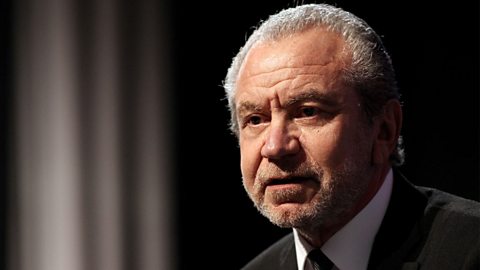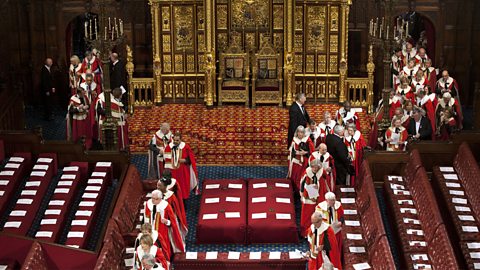What is the House of Lords?

The House of Lords is the second chamber of the UK Parliament. It complements the work of the House of Commons and makes laws, holds government to account and investigates policy issues.
How are Lords selected?
The House of Lords has approximately 800 members referred to as 'peers' (the number of peers varies).
Most peers have been appointed by the monarch on the advice of a Prime Minister, sometimes in recognition of their expertise in a particular area. Others are Church of England bishops and 92 are hereditary peers or people with titles (such as Barons or Viscounts) who have inherited the right to sit in the Lords.
Its main role is to debate and revise major legislation. The Lords also have the freedom and time to discuss other national issues as they arise. Peers in the House of Lords are not under the same pressure to vote with their party as MPs. Supporters of the Lords argue this means peers make a vital contribution to the quality of legislation.
Reform of the House of Lords
Many people oppose the House of Lords because the peers are appointed and not elected.
Others criticise the appointments system as leading to ÔÇÿcronyismÔÇÖ where the Prime Minister gives peerages to his or her friends and supporters.

Supporters of the House of Lords claim the fact members are unelected is a good thing. They believe peers look at Bills on their merits, rather than whether or not they will win them an election. They also point out that many peers are appointed because they have skills and expertise from outside politics. In contrast, a growing number of MPs have only ever worked in politics.
Some MPs have been seeking to reform the House of Lords for a long time. So far all attempts to reform the Lords so members have to be elected have failed. Former Liberal Democrat leader Nick Clegg was the latest to try. In August 2012, his bid was unsuccessful when Labour and Conservative MPs blocked his plans.
As part of his proposal, Nick Clegg wanted 4/5 of members of the Lords to be elected. The number of peers would have been almost halved, from 800 to 450. They would have served 15-year terms of office, after which they could stand for re-election.
Under this system, peers would have represented a specific part of the United Kingdom, elected via the Single Transferable Vote system of proportional representation.
Some peers would continue to be appointed by the King on the advice of the Prime Minister although the number of Church of England bishops would have been reduced. All hereditary peers would have been removed.
Some Labour MPs want the House of Lords to be a completely elected chamber, while other Conservative MPs argued that the Lords works effectively as it is and that the government should focus on more urgent issues like the economy or Brexit. The Coalition Government abandoned the House of Lords Reform Bill in August 2012 after an agreement could not be reached between the Coalition parties.
The SNP have called for the abolition of the House of Lords, and for it to be replaced with a democratic institution accountable to the electorate.